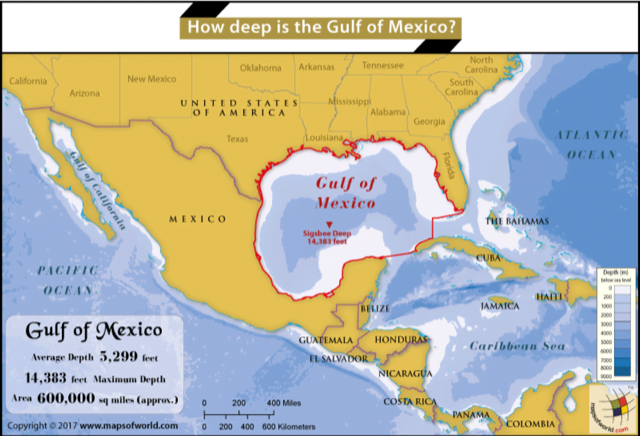UPSC Articles
Oil spill in the Gulf of Mexico
Part of: GS Prelims and GS- III – Environment
Context Clean-up crews and the US Coast Guard are trying to locate the source of an oil spill spotted in the Gulf of Mexico after deadly Hurricane Ida.
- Recent satellite photos by the National Oceanic and Atmospheric Administration (NOAA) showed the slick about two miles (3km) off Port Fourchon, Louisiana.
What is the source of the spill?
- The source of the miles-long oil spill was believed to be in the Bay Marchand area of the Gulf of Mexico.
- It appears to be coming from a source underwater at an offshore drilling site
- Damaged pipelines in the Bay are possible reasons for the spill.
Gulf of Mexico
- The Gulf of Mexico is an ocean basin and a marginal sea of the Atlantic Ocean, largely surrounded by the North American continent.

What is an oil spill?
- An oil spill refers to any uncontrolled release of crude oil, gasoline, fuels, or other oil by-products into the environment.
- Harmful effects of oil spill
- Oil spills can pollute land, air, or water.
- It prevents sufficient amounts of sunlight from penetrating the surface.
- It also reduces the level of dissolved oxygen.
- Oil-coated birds and marine mammals may die from hypothermia
- Ingested oil can be toxic to affected animals, and damage their habitat and reproductive rate.
Cleanup of Oil Spill:
- Containment Booms: Floating barriers, called booms are used to restrict the spread of oil and to allow for its recovery, removal, or dispersal.
- Skimmers: They are devices used for physically separating spilled oil from the water’s surface.
- Sorbents: Various sorbents (e.g., straw, volcanic ash, and shavings of polyester-derived plastic) that absorb the oil from the water are used.
- Dispersing agents: These are chemicals that contain surfactants, or compounds that act to break liquid substances such as oil into small droplets.
- Biological agents: Nutrients, enzymes, or microorganisms such as Alcanivorax bacteria or Methylocella silvestris that increase the rate at which natural biodegradation of oil occurs are added
News source: IE














